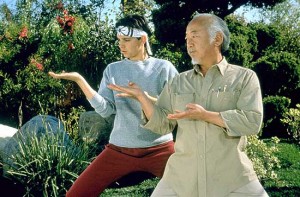One of the lovely students I mentor sent me this article yesterday, which felt especially timely because I have been thinking lately about the mentor-protégé relationship and the question of how older artists care for the more emergent. How important is mentorship to an art practice? To thinking? To life?
I’ve had/have many mentors. (GH. MNP. BM. EK. RS …) I have enjoyed being a mentor. I think there is value in this sort of relationship for some people. My own work certainly seems to benefit from a push-pull between assistance and independence, inspiration and defiance. At the same time, the traditional model of mentorship as a hierarchical bestowal of insight makes me uneasy. I tend to agree with scholar-poet-essayist Maggie Nelson that the “transmission of (knowledge, experience, wisdom, power)” is—at its productive best—more horizontal. I know in my own experience that professional and personal friendships—i.e. relationships less-marred by a conventional posture of deference—have been my most sustaining, fruitfully frustrating, emboldening (offering, in this sense, everything one might want from a mentorship.)
Of course, sometimes a mentor-protégé relationship will morph as was the case with Russian-born writer, intellectual, and psychoanalyst Lou Andreas-Salomé and Rainer Maria Rilke who eventually became lovers and literary comrades in what Maria Popova calls “a kaleidoscope of love” that irradiated “across the romantic, the platonic, the creative, the spiritual, the intellectual, and just about everything in between.”
But the reigning idea of mentorship has tended to elevate the authority of The One over The Other. While this picture might be institutionally practical, it’s really a skewed portrait and does not even begin to capture the criss-cross movement of ideas, hopes, affection and dreams incited whenever two creative/thoughtful people get together.
As an alternative, Maggie Nelson has taken to referring to her writing workshops as a space for making “casual affidamentos.” She claims to have borrowed the term affidamentos from poet Eileen Myles who claims to have borrowed it from “Italian feminists” who use it to describe “a relationship of trust between two women, in which the younger asks the elder to help her obtain something she desires.” In this essay, the word affidamento is translated as “entrustment” and implies something more mutual and radical than traditional mentorship.
A relationship of affidamento, in other words, is less about waiting to soak up the timeless wisdom of an elder, less about finding a master explainer or fixed navigation device, and more about finding an assistant dream weaver.
Our affidamentos are there to pull for us and put our struggles in perspective, there to encourage us to continue, offer a beneficent but not uncritical presence. I believe one can find affidamentos across time and geography, even beyond the grave. The books I keep close at hand, the ones by writers I have adored and admired are also affidamentos—forever radiating magic, urging me onwards.

